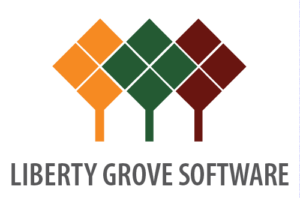Understanding Microsoft Licensing – Navigating the Maze

When it comes to Microsoft licensing, the array of options can be daunting. Making the proper license selection can be much like navigating a complex maze.
However, understanding the distinctions between the types of licenses can empower you to make the best decision for your business needs.
Let’s dive into the specifics of Premium vs Essentials, Team Member, Device, and Dynamics CRM licenses.
Premium vs. Essentials Licenses
Microsoft Dynamics 365 Business Central offers two primary license types: Essentials and Premium.
- Essentials: This license is for businesses that need core financial and business management capabilities. It includes modules for financial management, sales and marketing, purchasing, inventory, and project management. Essentials is ideal for small to medium-sized businesses requiring robust functionality without advanced manufacturing or service management features.
- Premium: This license includes all the features of the Essentials license, plus additional capabilities for manufacturing and service management. It’s suited for businesses with more complex needs, such as those in the manufacturing sector or those that require advanced service management features.
Team Member Licenses

Many organizations have users who may ingest data or reports from line-of-business systems or perform basic tasks such as updating HR records or entering time sheets but do not require full user capabilities.
These users are eligible for the Dynamics 365 Team Members license.
The Dynamics 365 Team Members license is a named user subscription designed explicitly for users whose occupations are not necessarily associated with a specific function but require access to a line-of-business system's fundamental functionality.
Within the Team Member experience, this license allows users restricted access through specific scenarios.
Dynamics 365's customer engagement applications (Dynamics 365 Sales, Dynamics 365 Customer Service, Dynamics 365 Field Service, Dynamics 365 Marketing, and Dynamics 365 Project Operations) offer this Team Member experience through a designated set of applications:
- Member of the Customer Service Team
- Member of the Sales Team
- Project Resource Hub
The Dynamics 365 Team Members subscription is not designed for scenarios that exceed those specified in the Microsoft Dynamics 365 Licensing Guide and does not grant access to custom applications.
The Team Member license is a lighter, more affordable option for users needing basic system access. This license allows users to:
- Read data and reports
- Update existing data and entries
- Approve or reject tasks in workflows
- Use employee self-service features
Team Member licenses are perfect for employees who need to perform specific tasks but do not require full access to the system.
Device-Based Licenses

The Device license is for shared devices used by multiple users. Instead of licensing individual users, you license the device itself.
It is beneficial in environments like retail stores, warehouses, or manufacturing floors where multiple employees might use the same device throughout the day.
Device licenses can help reduce costs and simplify management in these scenarios.
Microsoft 365 Apps for enterprise is accessible to all users of a license-equipped device. For instance, assume that your organization employs 20 laptops and devices.
Assigning a license to each device enables each individual who signs in to one of the devices to utilize Microsoft 365 Apps for enterprise without obtaining their own license.
Device-based licensing for Microsoft 365 Apps for enterprise is exclusively available as an add-on license for specific commercial and education customers.
The license for commercial customers is Microsoft 365 Apps for enterprise (device) and is exclusively available through Enterprise Agreement/Enterprise Agreement Subscription.
The license for education customers is Microsoft 365 Apps for Education (device) and is exclusively available through Enrollment for Education Solutions (EES).
Dynamics CRM Licenses

Dynamics 365 Customer Relationship Management (CRM) licenses for businesses focused on sales, customer service, and marketing. The main types of CRM licenses include:
- Sales: This license provides tools for managing the sales process, from lead generation to closing deals. It includes features like opportunity management, sales forecasting, and pipeline management.
- Customer Service: This license is for businesses that manage customer service interactions. It includes case management, service level agreements (SLAs), and knowledge management.
- Marketing: This license offers tools for creating and managing marketing campaigns, lead scoring, and customer segmentation. It’s ideal for businesses looking to enhance their marketing efforts and drive customer engagement.
Conclusion
Choosing the right Microsoft license type should be based on your business needs and the specific functionalities your team requires. Whether you need comprehensive business management tools, basic access for team members, shared device access, or specialized CRM capabilities, Microsoft offers a range of licenses to fit your requirements. Understanding these options is key to making an informed decision and maximizing the value of your investment in Microsoft solutions.
Need Licensing Advice?
Contact Liberty Grove for a complimentary consultation on how its team of experts can guide your organization through the complex maze of Microsoft licensing options and secure the right license for your business needs.
About the Author
Liberty Grove Software is an established Microsoft Partner that focuses on providing customers with sales, service, and support for Microsoft Dynamics 365 Business Central/NAV solutions and training and upgrades.
Liberty Grove Software helps manufacturing firms compete by automating tedious operations with Microsoft technologies. Our extensive manufacturing knowledge has established us as the preferred Microsoft partner for assisting mid-sized manufacturers in increasing production.
Over more than 25 years, Liberty Grove has assisted hundreds of customers with businesses ranging from small to mid-sized to Microsoft Partners in implementing, training, customization, and upgrading Microsoft Dynamics ERP solutions.
The organization is one of only a few companies worldwide that Microsoft recognizes as qualified to provide Business Central/NAV Upgrade Service Centers.

